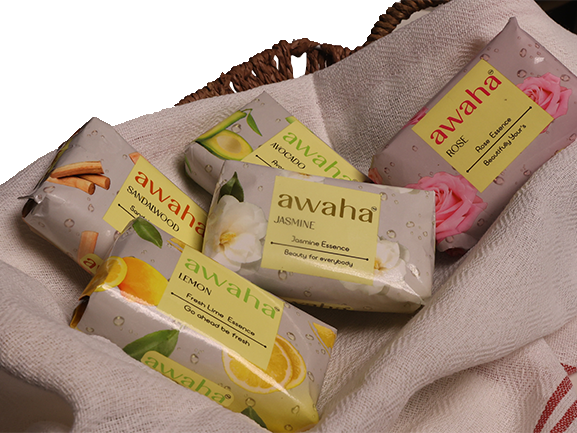Kalamboli, located in Navi Mumbai, Maharashtra, is rapidly becoming a significant industrial hub, especially for the manufacturing sector. Among the various industries flourishing in Kalamboli, soap manufacturing holds a prominent position. The area boasts a growing number of innovative, high-quality soap manufacturers that cater to domestic and inteational markets alike.
In this article, we explore the jouey, advantages, processes, and key players involved in soap manufacture in Kalamboli, highlighting why this locality is emerging as a prime destination for soap production.
The Growing Demand for Quality Soaps
The demand for soaps has seen a steady rise, driven by increased awareness of hygiene and wellness. Post-pandemic, the importance of regular handwashing and personal hygiene has elevated soap consumption across households, hotels, hospitals, and industries. In addition, consumers today seek a wide variety of soaps — from antibacterial and moisturizing options to premium handmade and organic varieties.
This rising demand has motivated many manufacturers to invest in state-of-the-art facilities, research and development, and sustainable manufacturing practices, positioning Kalamboli as a thriving hub for soap production.
Why Kalamboli Is Ideal for Soap Manufacturing
Several factors make Kalamboli an attractive location for soap manufacturers:
Strategic Location:
Kalamboli’s proximity to major highways like NH-4 and Mumbai-Pune Expressway facilitates easy transportation of raw materials and finished goods. The locality is also well connected to Jawaharlal Nehru Port Trust (JNPT), ensuring seamless export opportunities.Industrial Infrastructure:
Kalamboli is part of the MIDC (Maharashtra Industrial Development Corporation) zone, offering world-class infrastructure, ample industrial plots, and efficient utilities like water, electricity, and waste disposal facilities.Skilled Workforce:
Access to a large, skilled, and semi-skilled workforce makes it easier for soap manufacturers to maintain high production standards without compromising on quality.Cost-Effective Operations:
Compared to Mumbai and Navi Mumbai’s main areas, Kalamboli offers relatively affordable land, factory setups, and labor, making it an economical choice for large-scale manufacturing.Govement Support:
Various govement schemes encourage small and medium enterprises (SMEs) to set up manufacturing units with incentives such as tax benefits, subsidies, and simplified business registration processes.
Soap Manufacturing Process in Kalamboli
The soap manufacturing process in Kalamboli adheres to strict quality control measures and follows industry best practices. Here's an overview of the standard process:
1. Saponification
Saponification is the chemical reaction between fats or oils and an alkali (commonly sodium hydroxide) to produce soap and glycerin. Manufacturers carefully select the oils—such as palm oil, coconut oil, or olive oil—depending on the desired soap properties.
2. Mixing and Refining
After saponification, the mixture is further refined by blending various additives like fragrances, colorants, and moisturizing agents (e.g., shea butter, aloe vera, or essential oils). High-speed mixers and homogenizers ensure a consistent blend.
3. Drying and Milling
The soap mixture is then dried using vacuum dryers to remove excess moisture. Milling ensures the soap has a smooth texture and uniform consistency, improving its lathering capability.
4. Molding and Cutting
The processed soap is extruded into bars, cut to the desired size, and stamped with brand logos. Manufacturers in Kalamboli use mode, automated machines that increase production efficiency.
5. Packaging
Finally, soaps are wrapped and packaged using eco-friendly materials. Many Kalamboli manufacturers are now shifting toward biodegradable and recyclable packaging options to align with global sustainability trends.
Types of Soaps Manufactured in Kalamboli
Manufacturers in Kalamboli produce a diverse range of soap products to meet different market needs:
Toilet Soaps:
Regular use soaps for personal hygiene, available in various fragrances and formulations.Medicated Soaps:
Formulated with antibacterial and antifungal properties, these are commonly used in healthcare sectors.Beauty and Cosmetic Soaps:
Enriched with moisturizers, vitamins, and herbal extracts, designed for skincare routines.Organic and Herbal Soaps:
Made from natural ingredients, free from harsh chemicals, gaining popularity among health-conscious consumers.Liquid Soaps:
Includes handwashes and body washes, offering convenience and hygiene benefits.Specialty Soaps:
Customized soaps with unique features like exfoliating beads, luxury packaging, and premium ingredients.
Leading Soap Manufacturers in Kalamboli
Several prominent companies are leading the soap manufacturing sector in Kalamboli:
Local SMEs:
Numerous small and medium enterprises have set up mode manufacturing facilities, contributing significantly to the local economy.Private Label Manufacturers:
Many manufacturers offer private labeling services, allowing brands to customize products according to their specifications without setting up production facilities.Export-Oriented Units:
Some manufacturers focus primarily on exporting soaps to markets in the Middle East, Africa, and Europe, adhering to inteational standards and certifications.
Quality Standards and Certifications
Soap manufacturers in Kalamboli prioritize quality assurance and often obtain certifications such as:
ISO 9001:2015 (Quality Management Systems)
GMP (Good Manufacturing Practices)
FDA approvals
Organic certifications for natural products
BIS certification (Bureau of Indian Standards)
These certifications ensure that products meet stringent national and inteational quality standards.
Sustainability Practices
Sustainability has become a crucial focus for soap manufacturers in Kalamboli. Many companies are adopting eco-friendly practices, such as:
Using sustainably sourced raw materials
Implementing zero-liquid discharge (ZLD) systems
Minimizing carbon footprint through solar energy installations
Reducing plastic usage in packaging
Encouraging recycling and waste management initiatives
These efforts not only protect the environment but also appeal to the growing segment of eco-conscious consumers.
Challenges and Opportunities
Challenges:
Intense competition from established brands
Rising raw material costs
Navigating regulatory compliances
Consumer preference shifts toward organic products
Opportunities:
Increasing demand for luxury and specialty soaps
Export potential to untapped inteational markets
Collaboration opportunities with beauty and healthcare brands
Technological advancements in production and packaging
 leggings with mesh panels
leggings with mesh panels
 Summer dress with belt
Summer dress with belt
 Floral print sundress
Floral print sundress
 Sheath Gown Red Colors
Sheath Gown Red Colors


 Rose
Rose Sandalwood
Sandalwood Jasmin
Jasmin Fresh Lemon
Fresh Lemon Avocado
Avocado Rose
Rose Sandalwood
Sandalwood Jasmin
Jasmin Fresh Lemon
Fresh Lemon Avocado
Avocado
